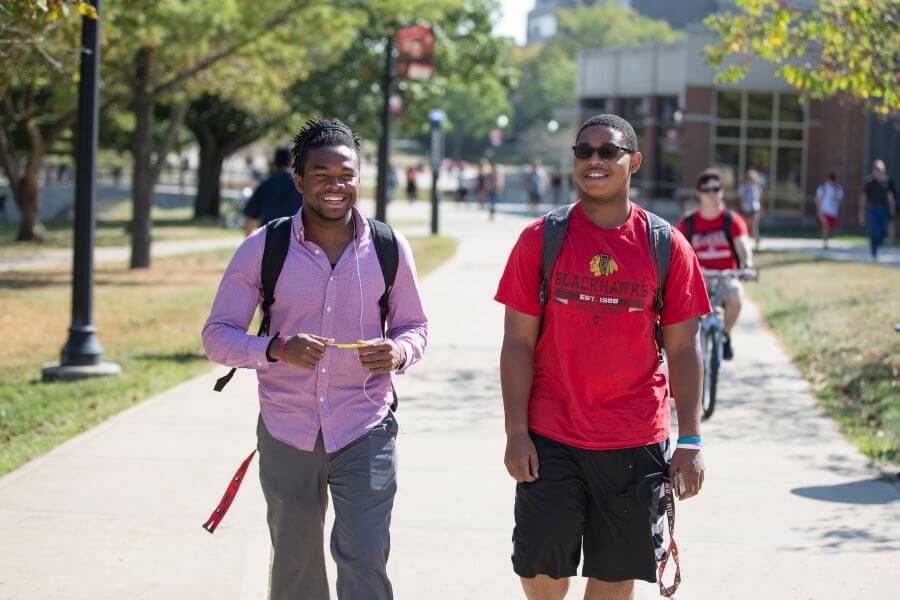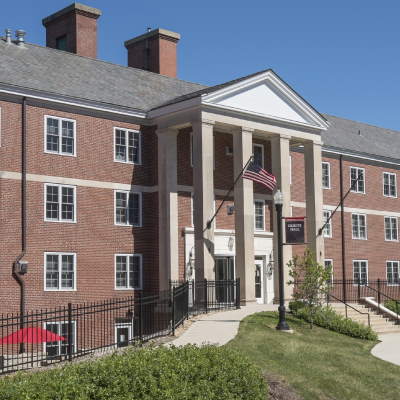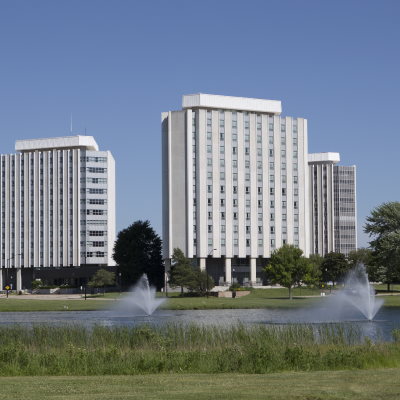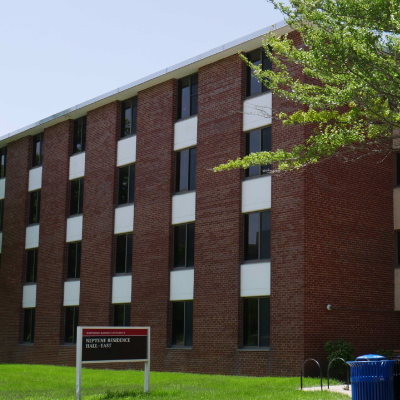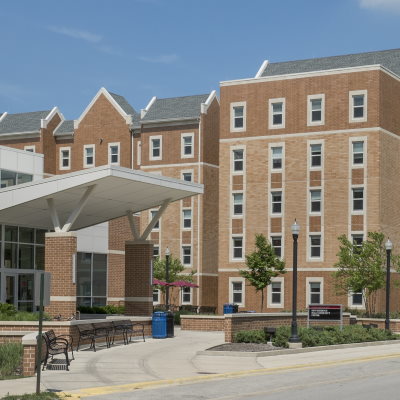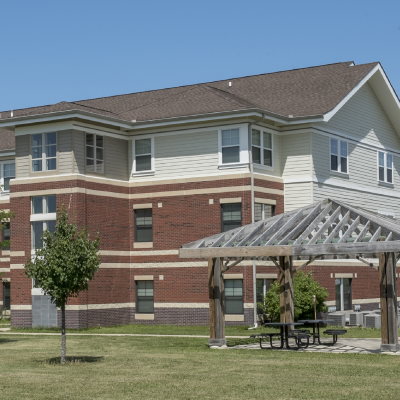- Housing and Residential Services
- About Housing
- Join Our Residential Life Team
Join Our Residential Life Team
As a research-focused institution with approximately 17,000 students and a low student-faculty ratio, we provide the amenities of a large university with a small-college feel.
Housing and Residential Services employs over 40 full-time and graduate assistant staff for the over 3,500 NIU students who live on campus.
Positions
We offer leadership and employment opportunities to undergraduate students through Residence Hall Association, community councils and our community advisor, desk assistant and tour coordinator positions. We also employ hall directors and complex coordinators for each of our six communities.
Full-Time Residence Hall Director
The full-time hall director provides primary leadership and overall management of a residence hall housing approximately 500 students.
- Supervises one to two graduate assistants and 10-18 community advisors.
- Directly supervised by a complex coordinator.
- 12-month live-in position with a meal plan.
Graduate Residence Hall Director
The graduate residence hall director provides primary leadership and overall management of a residence hall housing approximately 300-500 students.
- Supervises five to 10 community advisors.
- Directly supervised by a full-time residence hall Director or complex coordinator.
- 10-month, 20-hour-per-week live-in position with a meal plan.
Graduate Assistant for Leadership Development
The graduate assistant for leadership development serves as an operational advisor to the Residence Hall Association, providing primary leadership and overall advising of the student governance initiatives within Housing and Residential Services.
- Directly supervised by a complex coordinator.
- 10-month, 20-hour-per-week live-in position with a meal plan.
Graduate Assistant for Residential Community Standards
The graduate assistant for residential community standards provides leadership to and management of student conduct matters within Housing and Residential Services. The graduate assistant will also provide support for implementation of community standards on all residential floors and crisis response programs.
- Directly supervised by a complex coordinator and the director of student conduct or designee.
- 10-month, 20-hour-per-week live-in position with a meal plan.
Desk Operations Graduate Assistant
The desk operations graduate assistant (DOGA) is responsible for the day-to-day operations and management of a reception desk and its staff and supports night security services in a residential facility housing up to 2,000 students.
- Supervises 12-35 undergraduate student staff.
- Directly supervised by a complex coordinator.
- 10-month, 20-hour-per-week live-in position with a meal plan.
The NIU Experience
Our residence hall positions offer real-life experiences that are an excellent complement to NIU's Adult and Higher Education program. Former staff agree that their NIU experience prepared them for future careers in counseling, adult education and higher education.

So glad I started my career with NIU.
During my two years managing Stevenson C Tower as a graduate hall director, I learned what it took to supervise a large staff, manage crises and be a true team member. The relationships I built with my cohort are still the people I turn to when I need advice and encouragement. I know I would not be the housing professional I am today without the NIU Housing department and the dedicated Adult and Higher Education faculty.

An incredibly positive impact on my career in higher education and beyond.
I had the opportunity to advise student organizations, sit on various committees on campus and in the region and use my research and skills in the classroom to contribute back to the residential communities.
Rachel Stice, coordinator for residential education at Crown College and former residence hall director at NIU

Lifelong lessons.
My experience in the Adult and Higher Education program at Northern Illinois University provided me lifelong lessons, lifelong friendships and the unwavering pursuit of lifelong learning.
Jarvis K. Purnell, assistant dean of students at The University of Chicago and former graduate residence hall director at NIU

Complemented my coursework.
My assistantship challenged me to apply theory to my daily work and provided me with experience that made me a more marketable candidate in my job search.
Patrick Haught, student activities advisor at University of Minnesota and former graduate residence hall director at NIU
Why NIU?
NIU's Housing and Residential Services stands out from other institutions.
Student-centered Service
Our Division of Student Affairs is a national leader in higher education through its commitment to student-centered service, partnerships focused on student learning, establishing an inclusive community and actively building collaborative relationships.
Professional Development Opportunities
Departmental, divisional and university committees offer many professional development opportunities at NIU. Staff also participate in webinars, on-campus internships and travel for professional development conferences outside of NIU.
A Sense of Belonging
More than half of our first-year students are also first-generation college students. Our students meet people from different communities, cultures and countries. No matter what life experiences they bring, they have a home here.
Additional Benefits
- Tuition waivers: Staff working in Housing and Residential Services are eligible for tuition waivers.
- Partner policy: We allow live-in and live-on staff to have a domestic partner reside in their apartment.
- Pet policy: With approval, staff can have a cat or small fish in an aquarium in their apartment.
Fast Facts
- Six residence halls: Gilbert Hall, Grant Towers, Neptune Hall, Patterson Complex, Stevenson Towers, and Northern View Community each offer unique amenities.
- More than 3,500 students living on campus: Over a quarter of NIU's undergraduate population lives on campus.
- Several living-learning, special interest and identity-based communities.
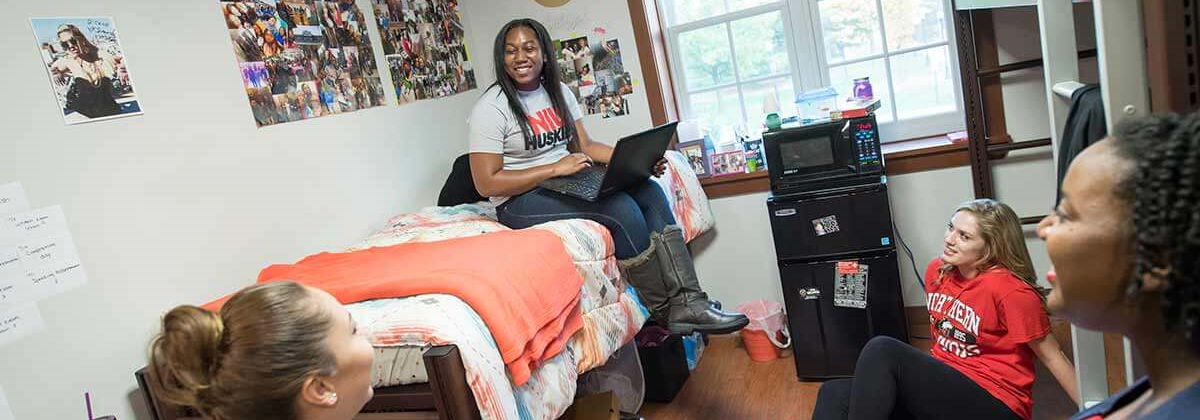
Our Residential Curriculum
Through the intentional interactions with students, we focus on the following learning outcomes using one-on-one conversations, programs, bulletin boards, poster series, field trips and a wealth of other initiatives.
Through engagement in our residence halls, students will be able to:
- Develop and practice cultural competence.
- Understand and advance career learning.
- Contribute actively through community engagement.
- Advance in personal growth and development.
